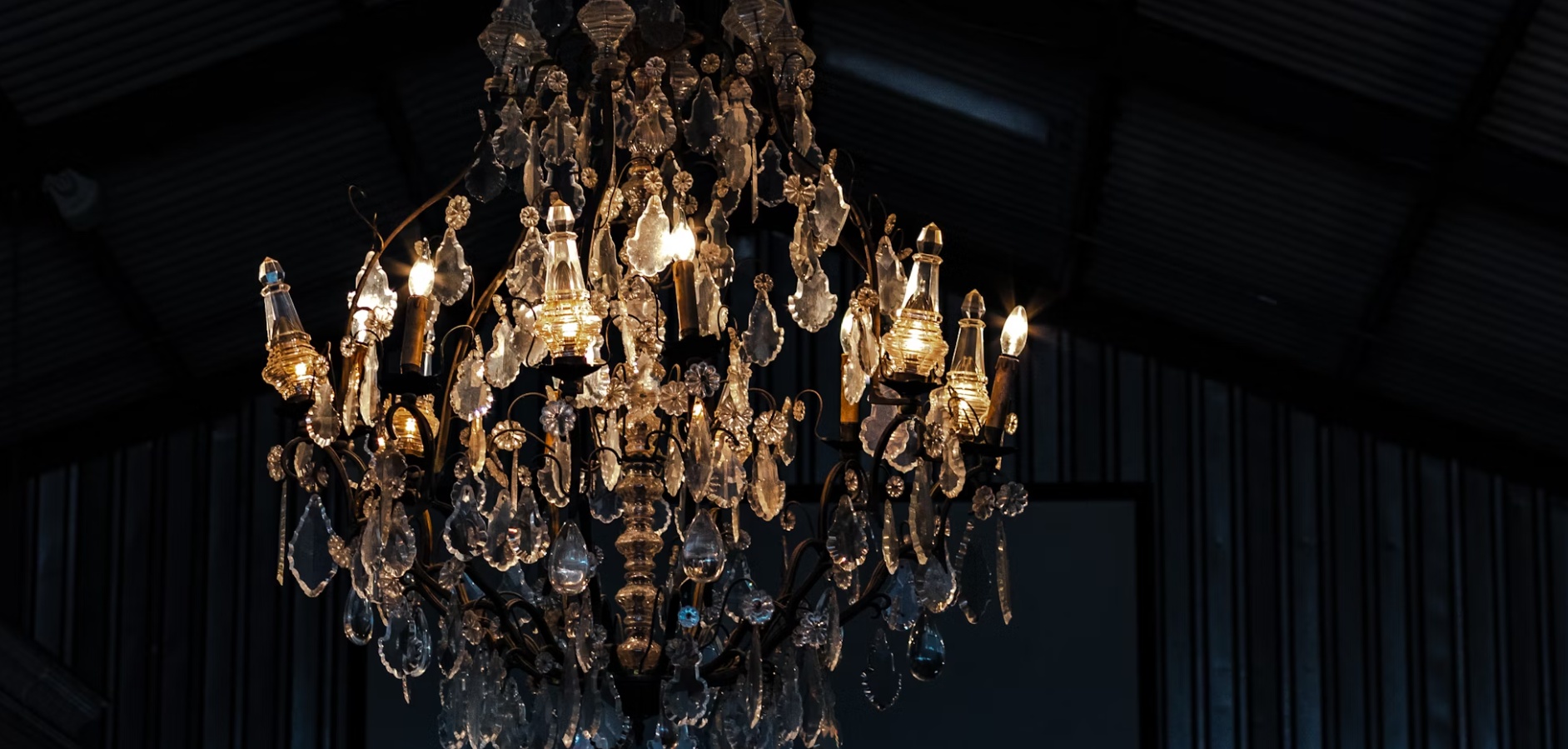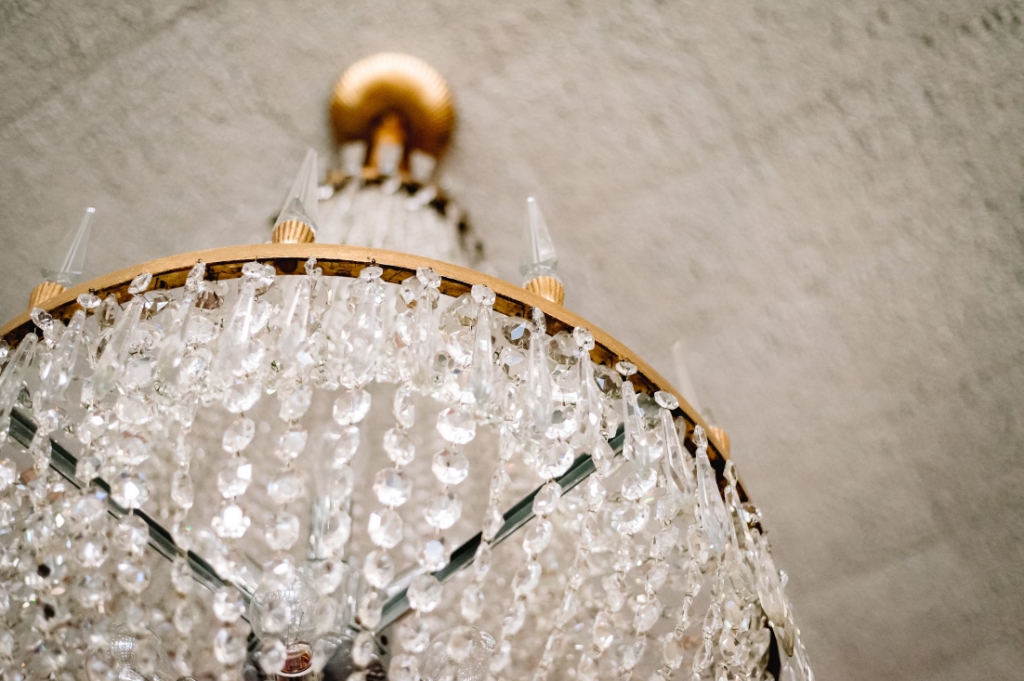
Is your beautiful chandelier no longer lighting up your room? Don’t worry, a chandelier that isn’t working doesn’t always mean it’s broken.
And in many cases, you can fix a dead chandelier yourself without having to call an electrician.
In this post, I’ll show you what to do if your chandelier stopped working all of a sudden.
Before we dig deeper, let’s start with the basics:
It may sound obvious, but sometimes the simplest explanation is the right one.

BTW Check Out Our Modern Nordic LED Branch Chandelier
Make sure none of the bulbs are burnt out or loose in the sockets. Replace any duds with fresh new bulbs of the same wattage recommended for your particular chandelier.
If the fixture returns to life, congrats on an easy fix!
It’s possible that the circuit breaker controlling your chandelier’s power tripped, causing it to go dark. Head down to your breaker panel and see if it needs to be reset.
Also check for any GFCI outlets on that circuit that may have tripped and need resetting.
If your chandelier is wired to a dimmer switch, make sure that none of the other switches are turned off separately. Dimmer modules themselves can also fail over time.
So bypass the dimmer by hardwiring the fixture directly to power to see if it resolves the issue.
If swapping bulbs, checking the breaker, and bypassing any dimmer didn’t bring your chandelier back from the dead, we need to start investigating the electrical connections and components themselves.

But don’t worry – even if you’re not an electrician, you can likely still troubleshoot the root cause safely if you take proper precautions.
Also Read: One light in chandelier not working
One of the most useful tools for an amateur is a simple non-contact voltage tester.
This handy pen-like device can detect the presence of live electrical current without having to touch any wires.
Shut off power to the chandelier’s circuit, remove the fixture’s cover plate, and use the tester on the wires attached to the chandelier mount.
If no power is detected leading to the fixture, you’ll need to trace the wiring back further towards the switch or breaker to isolate the problem.
Assuming your tester detects power at the mount location, the next step is checking if voltage is making it through to each individual socket.
Shut off power again and detach the chandelier from the mount if needed to access the sockets.
Use the voltage tester by touching one probe to the socket shell and the other to the center socket terminal.
Any sockets with no voltage have a faulty connection that needs repairing or replacement.
Okay, so you’ve checked the basic stuff and verified the issue isn’t due to a lack of power to the fixture or the individual sockets themselves.
Now it’s time to take a peek inside your chandelier to look for any wiring issues:
With the chandelier uninstalled and power off, open up any internal junction boxes or wire channels. Look for any obviously disconnected, frayed, or damaged wiring.
Also examine where wires connect, either via wire nuts or integrated connection points.
Loose connections are a common culprit for lamp issues.
Use your handy voltage tester again to check for continuity and power flow through the internal chandelier wiring. There may be a break or loose wire hidden that’s killing power to certain sockets, bulbs or segments of the fixture.
Resoldering any loose connections may be all it takes to revive it.
Back at the switch location, double check ALL wire connections are tight and secure to both the switch terminals themselves as well as any wirenut splices.
Loose wires at the switch end can absolutely cause lights to stop working properly.
So you’ve thoroughly inspected every internal wire, continuity tested everything, and still can’t find the root cause for why the lights on your once beautiful chandelier just won’t turn on?
BTW Check Out Our Luxury Feather Crystal Chandelier
At this point, it may be prudent to start considering swapping out potential faulty components like:
Keep in mind however, if you start replacing substantial components, you may be nearing the point where it’s more cost-effective to purchase a whole new replacement chandelier altogether.
Those parts are expensive!
When troubleshooting a non-working chandelier, start with basic checks like bulbs and circuit breakers, then progress to more detailed inspections of wiring and components.
Use a tool like a voltage tester to identify issues, and replace key components if necessary.
If at any point you feel in over your head or unsafe, it’s perfectly reasonable to punt the problem over to a qualified professional.
Electrical work does carry safety risks if you aren’t experienced.
FAQs
Yes, LED chandeliers can often be repaired, depending on the issue. In fact, you can do some repairs yourself. You can repair loose connections and replace LED bulbs.
But for trickier problems like a faulty driver or damage to the circuit board, it’s best to call in an electrician because these components require electrical expertise.
The lifespan of an LED chandelier typically ranges from 50,000 to 60,000 hours, depending on factors like usage and quality. However, actual lifespan can vary due to issues like overheating and product quality.




Leave a comment